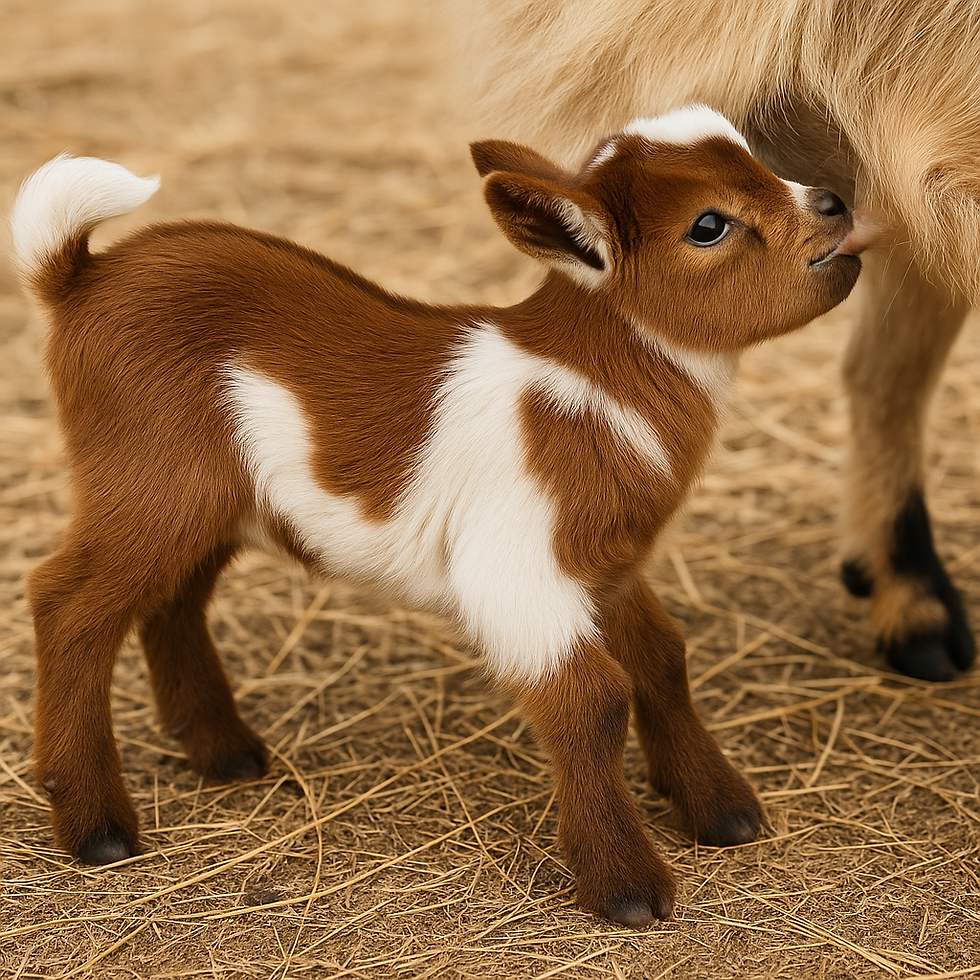Caring for Livestock During Colder Temperatures at Hartland Oaks
- hartlandoaksllc
- Jan 6, 2025
- 3 min read
As the crisp autumn air gives way to the chilly embrace of winter, ensuring the health and comfort of our beloved animals at Hartland Oaks becomes a top priority. The colder months present unique challenges for livestock, but with the right care and preparation, we can keep our mini donkeys, mini cow, chickens, rabbits, mini horses, standard horses, and dwarf Nigerian goats happy and healthy.
Shelter and Warmth
Providing adequate shelter is crucial as temperatures drop. Each animal requires a cozy, dry space to shield them from the elements. Here's how we prepare:
Mini Donkeys & Mini Horses: Their shelters are fortified with windbreaks, extra bedding like straw, and insulated walls. We make sure the shelters are spacious enough for them to move around yet snug to retain warmth.
Mini Cow: Similar to our equine friends, our mini cow’s shelter is well-insulated and stocked with plenty of straw for bedding. This helps keep her warm and comfortable.
Dwarf Nigerian Goats: Goats are hardy, but they need protection from the cold and damp. We ensure their barn has proper ventilation to prevent moisture buildup while maintaining warmth.
Chickens & Rabbits: These smaller animals are particularly susceptible to cold. We winterize their coops with insulation, ensuring no drafts can enter. Heat lamps are used sparingly to avoid fire hazards, and plenty of fresh bedding is provided.
Nutrition and Hydration
Cold weather increases the caloric needs of livestock as they expend more energy to stay warm. Here's how we adjust their diet:
Increased Feed: We provide more high-quality hay and grains, ensuring our animals have the energy they need. For the mini donkeys and horses, additional forage helps maintain body heat.
Warm Water: Dehydration can be a risk in winter when water sources freeze. We use heated water buckets and troughs to ensure a constant supply of fresh, unfrozen water.
Health Checks
Regular health checks become even more vital during the winter months:
Coat and Hoof Care: We monitor the thickness of their coats and check hooves regularly to prevent ice build-up and cold-related injuries. Trimming is done less frequently to maintain natural insulation.
Monitoring for Illness: Respiratory infections are more common in the winter. We keep a close eye on any signs of illness, such as coughing, nasal discharge, or lethargy, and act quickly to provide care.
Mental Stimulation and Exercise
Winter can be a monotonous time, so we ensure our animals stay mentally and physically active:
Enrichment Activities: Providing toys, scratching posts, and puzzle feeders keeps our livestock engaged. For the goats, we create climbing structures inside their barn for fun and exercise.
Regular Exercise: Whenever weather permits, we encourage outdoor play and movement to keep muscles strong and spirits high.
Community Involvement
At Hartland Oaks, we believe in sharing the joys and responsibilities of farm life. Throughout the colder months, we host educational workshops and farm tours to teach visitors about winter livestock care. It's a wonderful opportunity to connect with our community and inspire future caretakers of these amazing animals.
By taking these thoughtful steps, we ensure that every animal at Hartland Oaks thrives, no matter how cold it gets. Winter care is a labor of love, and seeing our livestock safe, healthy, and happy is the best reward.
Stay warm and cozy, from all of us at Hartland Oaks!




Comments